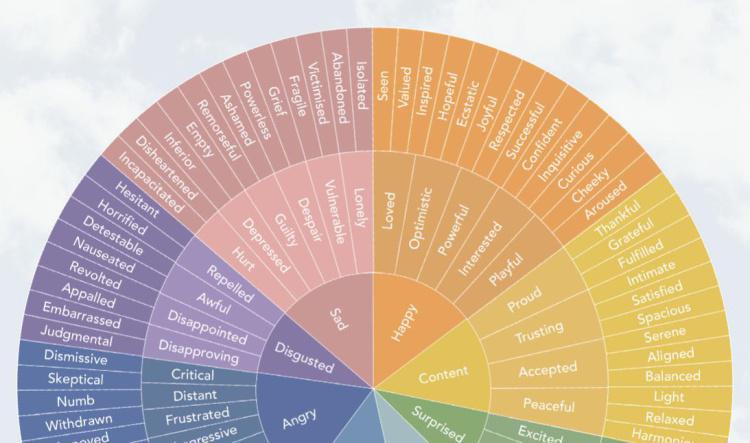What Is Emotional Regulation—and How Do You Recognize It?
What Is Emotional Regulation—and How Do You Recognize It?
Overcoming imposter syndrome involves changing your mindset about your own abilities. Imposters feel like they don’t belong, so acknowledging your expertise and accomplishments is key, as is reminding yourself that you earned your place in your professional environment.
To live a life of meaning and fulfillment, it’s essential to feel good on the inside—not just perform well on the outside. Many accomplished people quietly struggle with a nagging feeling that they don’t measure up. This is known as Imposter Syndrome, and it’s surprisingly common. Imposter Syndrome is the experience of persistent self-doubt, where external accomplishments are overlooked or dismissed by the person themself. Even when there is clear evidence of success, those with Imposter Syndrome often feel undeserving or “fake.”
These tools are for people who often feel like they're "too much" in relationships, tend to say things they regret, or feel emotionally reactive in social situations. It's designed to help you build awareness, regulate your emotions, and respond with greater clarity and connection. Grounded in evidence-based practices from Dialectical Behavior Therapy (DBT) and emotional regulation research, this tool offers practical steps to help you feel more in control and confident in your interactions.
When we live in the future, we have two options: a life that would be described as a life of trust or a life of fear.
Becoming a mom can be a beautiful experience filled with newness, bonding, and awe at the little being your body has produced. Yet, at the same time, this season can also bring unexpected loneliness and difficulty, both physically and mentally. Becoming a mom can be a beautiful experience filled with newness, bonding, and awe at the little being your body has produced. Yet, at the same time, this season can also bring unexpected loneliness and difficulty, both physically and mentally.
We navigate the world through three primary states of mind: Emotion Mind, Reason Mind, and Wise Mind. These states shape how we interpret our experiences and respond to the situations we face each day. Think of these states as existing on a continuum. At one end, we have an Emotion Mind, driven by feelings and impulses, and at the other, Reason Mind, guided by logic and facts. In the middle is Wise Mind—a balance of both, where emotion and reason come together to help us see clearly and act intentionally. Picture this: You’re sitting at your desk when you get an email from your boss asking to schedule a one-on-one meeting. Immediately, your emotions take over, and your mind spirals into a storm of assumptions. You jump to the conclusion that you’re about to be fired and start imagining worst-case scenarios. You even consider showing up to the meeting with your desk already packed.
This worksheet is here to help you gently explore what you’re feeling, offer yourself kindness, and navigate this season in a way that feels right for you. You deserve a safe, understanding place to process your experience—and that place can start with you. A Gentle Note to Begin...
This mindfulness exercise is designed to help you uncover and understand unclear or suppressed emotions by guiding you through a scan of your body, mind, and heart. While you can practice it anytime, it’s especially helpful when you sense a strong emotion but aren’t quite sure what you’re feeling. This tool is paired with the mindfulness exericse Naming Your Emotions. Please listen to the mindfulness exercise and then refer to these questions for your journaling experience.
This holiday season, instead of striving for a Pinterest-perfect tablescape, a chef-inspired turkey, or the ideal of a drama-free family gathering, consider embracing an idea that’s already central to the holiday — gratitude.
Healing loneliness is not just about finding more people to be around; it’s about cultivating meaningful and authentic connections. In a society that is more connected than ever through technology, we find ourselves in a world where digital connections often replace face-to-face interactions. Despite constant engagement with others online, our society is drowning in loneliness.
Fear is a natural response to a perceived threat. While fear keeps us safe in situations of real danger, sometimes it can be rooted in imagined outcomes or stories we tell ourselves. Understanding Fear
Being able to declare a meaningful apology is an underrated skill, and becoming a lost art, but being able to say “I’m sorry” in the right way can change the trajectory of, or maybe even save, a relationship.
Approaching your grief with a beginner’s mind means being open and accepting of the process without judgment. Allow yourself the space to experience grief without the pressure to have all the answers. Meet yourself right where you are that given day, and remind yourself that this is a time for self-compassion.
The feelings wheel is a valuable tool for navigating emotions. By naming your feelings, you can effectively process and move through them, promoting emotional well-being. It's helpful to use as a daily check in too. Using a feelings wheel can be a valuable tool for daily emotional check-ins and navigating strong emotions. The wheel categorizes broad feelings into more specific ones, making it easier to pinpoint and name what you're experiencing. This process is crucial for emotional self-awareness and management, helping you understand your reactions to triggers and uncover underlying emotions.
This guide offers practical tips and resources to help you learn about and manage SAD and maintain your well-being throughout the colder seasons. Have you ever noticed that as winter approaches, you begin to feel less like yourself? The spark that you had throughout Spring and Summer slowly starts to dim and you find yourself more irritable, sad, restless or lackadaisical (aka tired). If this is a recurring shift that happens as the days get shorter and the winter chill sets in, then you might be experiencing Seasonal Affective Disorder or SAD.
Gain a deeper understanding of how to feel content. Contentment is a special type of happiness that is tried, tested, and rooted deep within you. Audiocast included.




